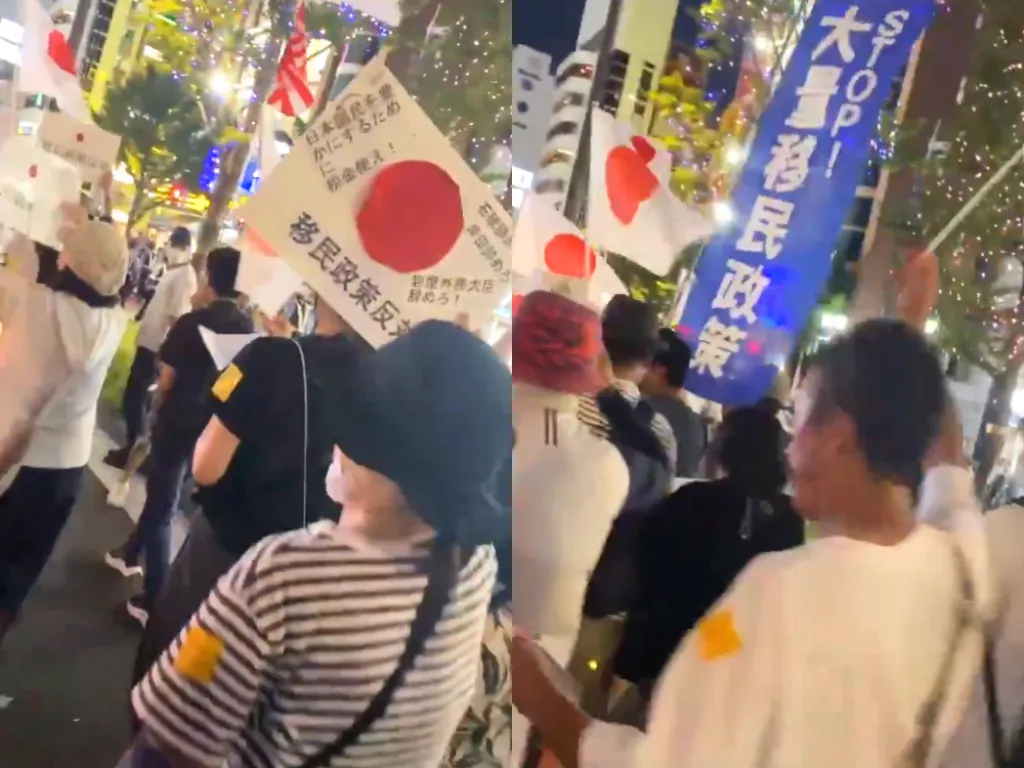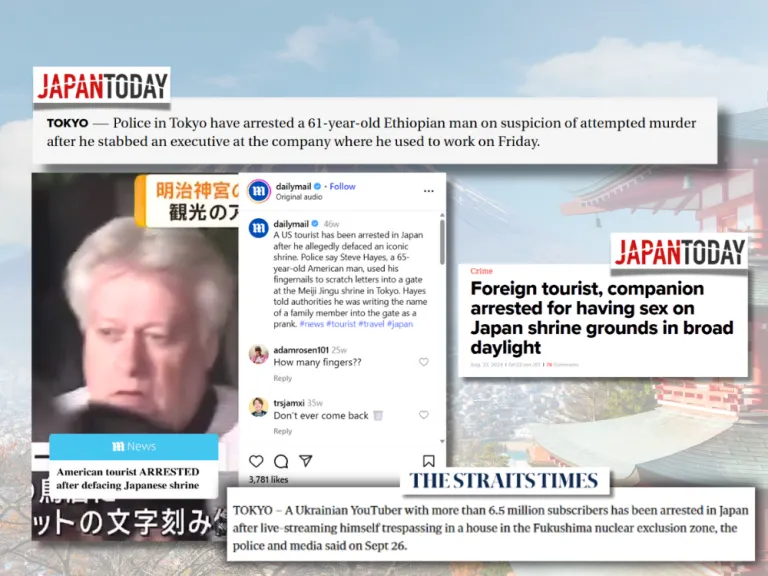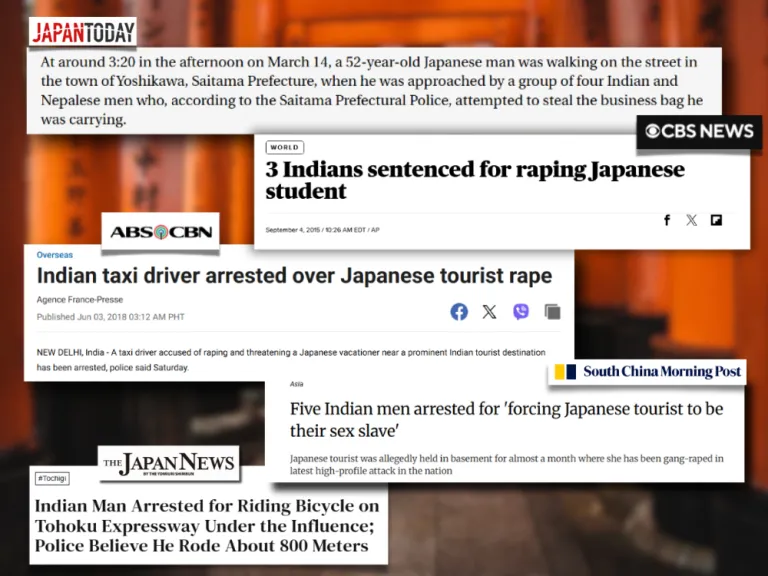Looking for a place to meet fellow artists and thinkers? Here are 10 collaborative spaces in Metro Manila where creatives can hang out, brainstorm, and build ideas.
Japan to Hire 500,000 Indian Workers, Sparking Outrage From Locals

Japan is planning to bring in 500,000 Indian workers and locals are outraged. Many say the government is rushing the plan without thinking about the cultural impact. Residents worry their streets, workplaces, and neighbourhoods could soon feel unrecognisable and filthy. Even though the deal is meant to fill labour shortages, Japanese citizens fear their traditional way of life is under serious threat.
The deal, signed between Tokyo and New Delhi, focuses on attracting skilled workers in sectors such as nursing, construction, and manufacturing. These industries have long struggled to find enough manpower as Japan’s population continues to age. But this announcement has also sparked debates on social media with locals expressing concern over how the sudden influx of foreign workers might affect their communities.
The plan doesn’t stop there. Japan also intends to hire 100,000 Bangladeshi workers. They had also planned to establish African communities in four cities but that part of the plan was scrapped after local backlash. These developments show just how much change locals are now facing and why their frustration is so strong.
Also read: More Indians Can Visit Philippines Now as Visa-Free Entry Takes Effect
Why locals are upset

Japan has one of the world’s biggest labour shortages with almost 30 percent of its people over 65. Even so, many Japanese are still wary of letting in large numbers of foreigners. For years, the country has valued social harmony and discipline and being culturally homogenous is a point of pride.
This is not the first time such backlash has happened. In recent years, there have been similar reactions when the government opened its doors to more African and Southeast Asian workers. Many locals say their frustration is not about racism but about preserving community norms and daily routines. They worry that some foreign workers may not follow local customs, respect public cleanliness, or adjust to strict social etiquette.
Experts note that these concerns reflect real anxieties about maintaining harmony in neighbourhoods, schools, and workplaces, rather than simple prejudice.
Also read: 20 Don’ts You Should Know While Visiting Japan
Why locals feel unsafe

A shocking crime has pushed Japanese locals’ tempers over the edge. In June 2025, a 24-year-old Indian man was arrested for allegedly raping a teenage girl in Otsu City. The suspect was a temporary worker in the area and the case sent the local community into a state of alarm.
People are furious and demanding answers. Many say they no longer trust how foreign workers are screened and they worry the government is rushing the plan without protecting neighbourhoods first. Social media has been filled with angry posts calling for tougher background checks, better supervision, and stricter penalties for offenders.
These fears are heightened by a broader context. India has an alarming record of sexual violence, with nearly 40,000 rape cases reported nationwide in 2016. In addition, a Japanese tourist was raped by an Indian taxi driver in India in 2018, an incident widely reported in the media. While these events do not reflect the behaviour of every individual, they help explain why serious incidents abroad can amplify anxiety among host communities.
Most foreign workers follow the law and help the economy but high‑profile crimes like this leave a mark. Such disgusting criminal cases fuel Japanese locals’ rage and go out to protest against foreigners entering their beloved country. These reports of Indians being a danger to Japanese society also increase pressure on officials to act and hear upon locals’ request to be left alone. Locals demand safety to come first before mass hiring dangerous foreigners.
What this means for other foreign workers

Image credit: Canva Pro
For Filipinos and other foreign nationals in Japan, this news has mixed effects. On one hand, it shows Japan is opening more jobs to Asian workers, which is good for nurses, caregivers and technical trainees.
On the other hand, social tension is rising. Some expats report clashes with other foreign workers. One Filipino-Japanese posted on TikTok that he was hanging out with his brother in Osaka when a group of drunk Indian men tried to attack him out of nowhere even though he had not done anything hostile towards them. Incidents like this are rare but they show how quickly misunderstandings can escalate and make life harder for all foreigners.

Image credit: mikasan__ | Tiktok
Japan needs migrant workers but without better integration programmes, misunderstandings and prejudice could continue. Some politicians are already calling for stricter screening of new workers.
Also read: New Japan Immigration System Makes It Easier for Filipino Tourists
The balance between dependence and discomfort

Image credit: Canva Pro
Japan needs foreign workers to keep its economy running but many locals still feel uneasy living alongside them. How the country manages this tension could shape Japanese society for years to come.
For foreign workers, especially from Southeast Asia, it is important to understand Japan’s values of respect, discipline, and harmony. Even small actions like being punctual, modest, and quiet in public can greatly affect how locals view foreigners.
A lesson for expats

Image credit: Canva Pro
While Japan’s strictness may seem harsh, it reflects real fear of losing identity. Locals see their streets, workplaces, and traditions changing fast, and some feel like strangers in their own country.
As more foreigners arrive, adaptation must go both ways. Expats need to respect and understand the country they chose to live in. Adjusting is not just polite, it is necessary. Many Japanese feel they are now the ones forced to adapt to outsiders who ignore local norms, and that frustration is valid.
Respect goes both ways. If Japan’s future depends on foreign workers, building mutual respect between locals and newcomers will be the real challenge.
Published at
About Author
Wynona Purl
Subscribe our Newsletter
Get our weekly tips and travel news!
Recommended Articles
10 Creative Hangout Spots Around Metro Manila for Artsy Souls 10 Cutest Cafes in Japan That Are Totally One of a Kind From Pikachu snacks to Totoro cream puffs, here are 10 themed cafes in Japan that prove café hopping should be part of your travel itinerary.
10-day Christmas and New Year Japan Trip: Complete Travel Itinerary Celebrate Christmas and New Year in Japan with this 10-day holiday vacation itinerary packed with Tokyo lights, Kyoto charm, and Osaka adventures.
Top 10 Post-Breakup Destinations for Healing and Self-Rediscovery Ready for a solo travel?
11 Days of All Things Weird & Wonderful in Japan When 11 days in Japan still aren’t enough!
Latest Articles
Filipinos Can Now Travel to Armenia Visa-Free! Check the 2026 requirements and a 5-day itinerary here.
New Zealand Confirms 2026 Working Holiday Visa Dates and Limited Slots 2026 visa application guide
MRT-7 Partially opens 6 New Stations From Caloocan to QC DOTr eyes partial operations for 6 stations between Sacred Heart and Tandang Sora
Philippine Airlines to Move Siargao and Coron Flights to Clark International Airport Philippine Airlines is moving key island flights out of NAIA this March.
PAL Now Allows Small Dogs on All Domestic Flights in the Philippines Flying with your dog

